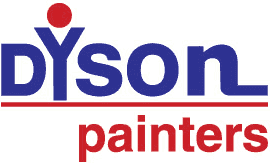High-pressure cleaning is a powerful method for keeping exteriors looking fresh, and removing built-up dirt, mould, and grime efficiently. For many homeowners, the temptation to save money by opting for a DIY approach can be strong. However, high-pressure cleaning involves more than meets the eye, and without the right knowledge and equipment, it can lead to unintended consequences. Whether it’s for your driveway, patio, or house siding, the risks associated with DIY pressure cleaning are often underestimated. In this guide, we’ll uncover the hidden dangers of DIY pressure cleaning and why trusting professionals might save you more than just time.
Introduction to DIY Pressure Cleaning
Many Hobart homeowners see DIY high-pressure cleaning as an affordable and easy way to maintain their home’s exterior. The appeal is understandable—purchasing or renting a pressure cleaner and spending a day refreshing surfaces can seem straightforward. High-pressure cleaning, however, requires a level of skill and precaution that’s not always apparent to beginners. Without proper training, it can quickly become dangerous and costly. Professional services ensure your home is cleaned safely and effectively without risking personal injury or property damage.
Affordability Leads to Increased DIY Pressure Cleaning
The affordability of DIY pressure cleaners has made it more accessible for homeowners to attempt the job themselves. While the idea of saving money on cleaning might seem appealing, high-pressure cleaning equipment, even in affordable models, generates powerful forces that can become hazardous when misused. In Hobart, many local painters and cleaning experts have noticed an increase in DIY cleaning attempts, often followed by calls to repair damages caused by improper technique.
Rise in Injuries from DIY Pressure Cleaning
Unfortunately, with this rise in DIY attempts comes a corresponding increase in injuries. Pressure cleaners produce water at such high speeds that they can puncture the skin, damage soft surfaces, and even cause eye injuries from flying debris. For those working at heights, the risks of falls are even higher, especially when wet surfaces lead to slips. In Hobart, some homeowners end up contacting painters after damaging their exterior paintwork, illustrating how an attempt to save money can end up costing more in repairs.
Potential Injuries from DIY Pressure Cleaning
When it comes to DIY pressure cleaning, potential injuries are not only likely but, in many cases, serious. The power behind high-pressure cleaning requires careful handling and protective equipment, both of which are often overlooked by DIY enthusiasts. Some of the most common injuries include:
1. Skin Lacerations and Punctures
The intense force of water from a high-pressure cleaner can cause severe skin injuries. Many people underestimate just how forceful the water stream is, risking deep skin lacerations or punctures by getting too close to the nozzle. These injuries often require medical attention, and in severe cases, may even lead to infection. High-pressure cleaning professionals are trained to avoid these injuries by using the proper techniques and equipment to manage the force of the water stream.
2. Eye Injuries from Flying Debris
As surfaces are blasted clean, small rocks, paint chips, and other debris can fly into the air. Without eye protection, homeowners risk serious eye injuries. Even if wearing goggles, the powerful spray can knock debris around at surprising speeds, making it easy for an accidental injury to occur. Professional pressure cleaning teams use safety protocols and protective equipment to minimise these risks, ensuring that every area is cleaned without risk of injury.
3. Risks of Improper Pressure Washer Use
While DIY cleaning may seem straightforward, improper use of pressure washers can lead to expensive damage to your property. High-pressure water streams, which are powerful enough to strip away dirt and grime, can also harm various materials and surfaces if used incorrectly. Here’s a look at some common types of property damage from improper pressure washer use.
4. Damage to Windows and Glass Surfaces
One of the most common risks associated with DIY high-pressure cleaning is damage to windows and other glass surfaces. Pressure washers can quickly shatter or crack glass if the water stream is too strong or directed too close to the surface. Windows may look sturdy, but they are more delicate than you might think especially older or thin-panelled windows. A sudden high-pressure blast can cause cracks, leading to broken glass and costly replacements. Professional services are trained to use the correct techniques and settings on glass surfaces, reducing the risk of damage and ensuring a streak-free, clean finish.
5. Etching and Stripping of Surfaces
High-pressure cleaning can inadvertently strip or etch surfaces, particularly on wood, stucco, and even certain types of siding. When too much pressure is applied or held too close, it can cause irreversible etching that leaves visible lines, scratches, and marks on the surface. On wooden decks or fences, for example, improper pressure can tear into the wood grain, stripping protective finishes and requiring expensive repairs. Similarly, painted surfaces can be stripped or damaged, often resulting in a patchy, uneven look that will likely require repainting.
Professional painters Hobart-wide are familiar with these types of damage and often see DIY cleaning efforts gone wrong. This underscores the importance of knowing the correct pressure settings and techniques for each material.
6. Water Damage to Electrical Components
One of the lesser-known risks of DIY high-pressure cleaning is potential water damage to electrical components, especially around outdoor lighting fixtures, outlets, and air conditioning units. Most DIY enthusiasts may not be aware of how easily water can infiltrate and damage electrical systems, resulting in short circuits, malfunctioning units, or, in severe cases, fire hazards. High-pressure water can penetrate small cracks, reaching wires or other components not designed to handle water exposure. When you hire professionals for commercial pressure cleaning, they know how to avoid these areas and use methods that protect your property’s electrical components.
Safety Precautions for DIY Pressure Cleaning
If you decide to attempt DIY pressure cleaning, taking the right safety precautions is essential. Proper equipment and techniques are critical to reducing injury risks and minimising potential damage to your property.
1. Proper Protective Equipment
Protective gear should never be overlooked when using a high-pressure washer. At a minimum, wear heavy-duty gloves, goggles, long sleeves, and closed-toe shoes. Eye protection is crucial to prevent injuries from flying debris, while gloves and long sleeves can help protect against skin abrasions and accidental spray contact. Professionals are always equipped with the proper gear, setting a standard for safety that DIY cleaners should follow closely.
2. Grounding and Electrical Safety
To avoid potential water and electrical hazards, be mindful of grounding and nearby electrical sources. Before starting, identify and secure any outlets, light fixtures, or electrical panels in your cleaning area. Water and electricity don’t mix, and a stray jet of high-pressure water could lead to electrical short circuits, or worse, personal injury. For added safety, ensure your equipment is properly grounded and consider using a Ground Fault Circuit Interrupter (GFCI) outlet, which can cut off power quickly in the event of a malfunction. Professional commercial pressure cleaning teams have experience working around these hazards, which helps protect both property and individuals.
3. Ventilation for Gas-Powered Washers
If you’re using a gas-powered pressure washer, remember that it produces carbon monoxide—a colourless, odourless, and potentially lethal gas. Only operate gas-powered washers in well-ventilated outdoor areas. Using them indoors, in garages, or in other enclosed spaces can lead to carbon monoxide poisoning. When high-pressure cleaning is handled by trained professionals, they ensure all equipment is used in safe, ventilated areas, preventing any harmful exposure to carbon monoxide.
Why Hire Professional High Pressure Cleaning Services
When it comes to pressure washing, hiring professionals brings substantial advantages over a DIY approach. In Hobart, experts including painters and cleaners, provide homeowners with a level of precision and safety that’s difficult to achieve alone. Here’s why hiring experienced professionals is a wise choice:
1. Experience and Expertise
Professional high-pressure cleaners have the expertise to handle various surfaces, from delicate siding to robust concrete. They understand the correct settings and techniques for each material, ensuring an effective cleaning without risking damage. Painters in Hobart often see homes needing repair after DIY attempts, reinforcing the value of professional knowledge.
2. Proper Equipment and Techniques
Professionals use commercial-grade equipment designed for efficient, thorough cleaning. Unlike rental machines, these high-power washers allow for variable pressure settings, enabling safe yet powerful cleaning for even the toughest grime.
3. Insurance for Potential Damages
Accidents can happen, but with insured high-pressure cleaning services, homeowners have protection. Professional companies carry insurance, covering potential damages, which offers homeowners peace of mind and avoids costly out-of-pocket repairs if issues arise during the cleaning process.
Inquire Now!
Frequently Asked Questions
1. Is high-pressure cleaning suitable for all surfaces around my home?
Not all surfaces can withstand the force of high-pressure cleaning. Materials like delicate wood, older brickwork, or painted surfaces may be damaged if pressure settings are too high. Professionals assess each surface’s durability and adjust pressure settings accordingly, using alternative cleaning methods when necessary for fragile materials.
2. Can I pressure clean my home’s roof on my own?
Roof cleaning can be particularly risky for DIYers. Not only are there height and slip hazards, but the water pressure needed to clean roof surfaces can damage shingles, tiles, or other materials. Professionals in Hobart use specialised equipment and techniques to safely clean roofs without causing structural issues.
3. How often should high-pressure cleaning be done?
Frequency depends on factors like the climate, exposure to elements, and surrounding vegetation. In Hobart’s coastal environment, annual or biannual cleanings often help prevent mould, algae, and salt buildup. Consulting a professional will give you a schedule suited to your property’s needs.
4. Why can’t I just use a garden hose to wash my exterior?
A garden hose lacks the power to remove deep-set grime, mildew, or tough stains. While useful for light rinsing, it can’t replace the thorough results of a high-pressure cleaner operated by a professional.
5. Will high-pressure washing remove oil stains from my driveway?
High-pressure cleaning can effectively reduce or eliminate oil stains from driveways, but the results depend on how long the stain has been set. For older or stubborn stains, professionals use special cleaning agents alongside pressure washing to break down and lift oil residues.
6. Is high-pressure cleaning environmentally friendly?
Professional pressure washing services often use eco-friendly cleaning agents that are biodegradable and safe for surrounding plants and soil. Additionally, because the powerful water pressure quickly removes grime without excessive chemicals, it’s a more sustainable choice than other cleaning methods that might rely heavily on detergents.
Refresh and Protect Your Home with Expert High-Pressure Cleaning
Professional high-pressure cleaning at Dyson Painters in Hobart ensures every surface gets the deep clean it deserves, leaving your property refreshed and protected. Whether it’s removing stubborn dirt from driveways, cleaning delicate windows, or tackling mould buildup, our expert cleaners handle each task with precision and care.
Don’t let DIY attempts lead to costly repairs or unexpected injuries—trust professionals who know the ins and outs of safe, efficient pressure cleaning. Get in touch at 0420 213 214 with our team today for a no-obligation consultation and see how our residential and commercial high-pressure cleaning services can restore the beauty and longevity of your home. Alternatively, you can also email us at dysonpainters@bigpond.com for a free quote on our pressure cleaning costs.




